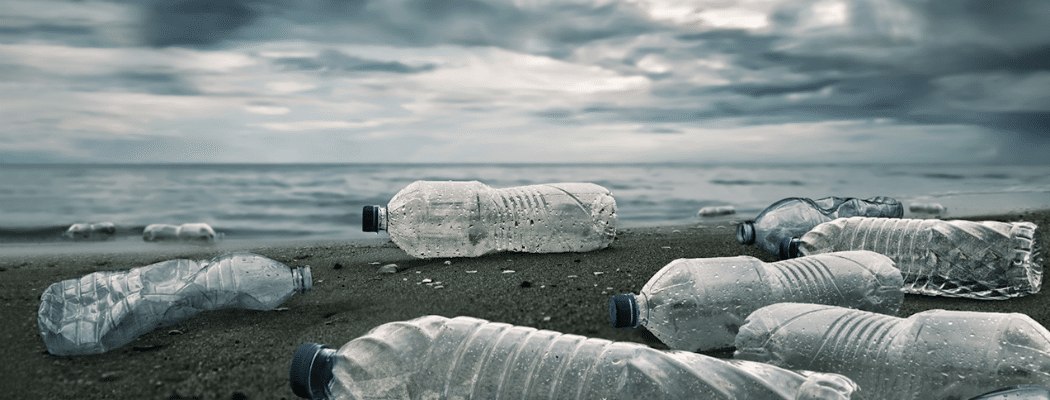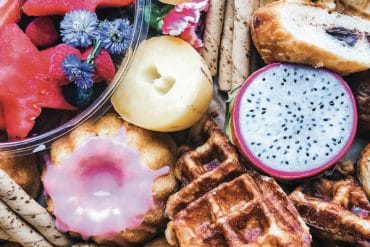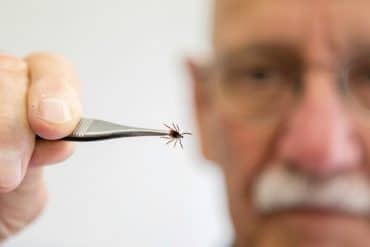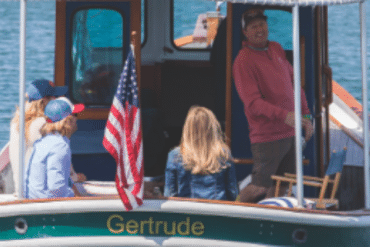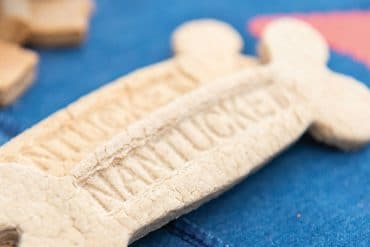Nantucket’s campaign to eliminate single-use plastics launches this June.
 Evidence shows that more than ten million tons of plastics ends up in the oceans annually, leading scientists to predict that there will be more pieces of plastic than fish in the sea by the year 2050. Eighty-nine percent of those plastics are of the single-use variety. They take hundreds of years to break down and leave behind microplastics that end up in the bloodstreams and digestive tracts of wildlife, currently endangering more than 1,200 species and possibly ending up in our bloodstreams as the top of the food chain.
Evidence shows that more than ten million tons of plastics ends up in the oceans annually, leading scientists to predict that there will be more pieces of plastic than fish in the sea by the year 2050. Eighty-nine percent of those plastics are of the single-use variety. They take hundreds of years to break down and leave behind microplastics that end up in the bloodstreams and digestive tracts of wildlife, currently endangering more than 1,200 species and possibly ending up in our bloodstreams as the top of the food chain.
On a macro-scale, plastic-filled gyres the size of small cities swirl for millions of miles in the Pacific Ocean. Here on Nantucket, a committed group of residents, politicians and civil servants is on a mission to address this global crisis while also protecting the island’s underground aquifer from the toxic chemicals that leach from plastics over time.
This summer, the island will become the latest of a small group of towns in the Commonwealth of Massachusetts to ban single-use plastics. More comprehensive than the other laws in the state—the first of which was established by Concord in 2013—Nantucket’s ban goes beyond the commercial sale of single-use water bottles and includes nonrecyclable coffee pods, commercial cups and lids, straws and drink stirrers, plastic yokes on six packs and bottles, and non-compostable plates and utensils.

“We just want Nantucket to be a safe place to grow up and live in terms of the water we use and drink,” said Bruce Mandel, the Madaket resident who filed the original citizen’s petition for the bylaw in October 2018. “The Town has always acknowledged that plastics represented a danger to our aquifer and water supply, and I hope this whole process establishes Nantucket as a leader on these issues.” When Mandel first launched the campaign, he wasn’t met with a lot of support. “But after I collected the hundred signatures needed, and it was voted on at the Special Town Meeting, the Town and the Select Board really jumped on board.”
In the months following the bylaw’s passage, Town Manager Libby Gibson formed a working committee comprised of Mandel, Emily MacKinnon of the Nantucket Land Council, Kristie Ferrantella of the Nantucket Select Board and Chamber of Commerce, Rita Higgins of the Select Board, Rachel Hobart of ReMain Nantucket, as well as a collection of Town employees including Public Outreach Manager Florencia Rullo, Recycling and Solid Waste Coordinator Graeme Durovich and Health Director Roberto Santamaria.
“It is our hope that by banning certain products, we will see fewer plastics littering our streets, clogging our landfill and contaminating the harbor and ocean,” Rachel Hobart said. “And, of equal importance, the 2020 ban illustrates to our year-round and seasonal communities that living without these plastics is easy and impactful, even on an individual level. We want to change people’s habits permanently—no matter where they shop or live.”
While the island’s major retailers have been receptive to introducing alternative products and services to their shelves, there have been inevitable challenges. “Businesses have definitely felt the difficulty of trying to find appropriate alternatives for products they’re currently selling,” Kristie Ferrantella said. “But even now, you’ll see a lot of the businesses and coffee shops have already adapted. These companies are looking at the big picture, too.”

Choosing new products wisely is important. Some products that appear to be eco-friendly can actually be just as bad or worse for the environment than the plastics they are replacing. For example, boxed water that’s been marketed as an alternative to single-use bottles contains other petroleum-based waxes and metals that are extremely difficult to break down. With that in mind, Ferrantella said that consumers should look for their own alternatives to plastic water bottles, like the aluminum bottles that the Town and a number of nonprofits will be giving out for free. These aluminum bottles can then be filled at new water stations and fountains that the Town is in the process of installing.
“At the end of the day, we are just asking all these folks to join us in the effort to reduce the use of plastics on the island and in our lives, no matter if you’re a retailer, resident or even a visitor,” said Janet Schulte, the Town’s director of Culture and Tourism, who has helped educate the community through flyers, email blasts and in-person meetings. This call for citizen participation highlights a key distinction of the new bylaw, namely that it only governs commercial operations such as retailers, restaurants, nonprofits and food vendors/caterers. The bylaw does not prohibit residents from buying bottled water and other banned single-use plastics through Amazon or other off-island retailers.
“People still have to make the choice to conserve and preserve Nantucket for themselves,” Libby Gibson said. “We’ve received strong support with only a little resistance from some businesses at first, but most people understand that this is going to be good for the island and for the environment.”
“The ban is not geared toward the public, but it is really a message to take a step back and think about waste management on Nantucket,” said Graeme Durovich, who manages the Town’s recycling program and plays a strategic role in how Nantucket manages what happens to its solid waste. “The landfill and recycling center are the last options available to us, so we’re encouraging people to think about this as an opportunity to get away from this ‘single use’ and disposable mentality. We should be thinking about how to repurpose, reuse, repair and refill, so we are getting a lot more use out of items that will eventually end up in the landfill.”

Durovich explained that the Town is currently in the middle of a contract with Waste Options to handle operations at the dump and landfill facilities through 2025. Almost all of Nantucket’s refuse is shipped off-island, some ending up buried as far away as Ohio. The only refuse that stays on-island are the plastics and other non-biodegradable materials that end up making their way through the facility’s large composter. This machine heats up much of the island’s biodegradable waste to 160 degrees for three days before turning it into viable soils, fertilizers and mulching materials.
While Bruce Mandel is certainly pleased with how his fledgling campaign has taken off since he first proposed it two years ago, the Madaket resident still believes the ban hasn’t gone far enough. In the years to come, he hopes that other insidious single-use plastics like nips found in liquor stores will also be prohibited. As with his fellow committee members, Mandel hopes Nantucket will serve as an example for towns off-island and beyond. Because when it comes to preserving the beauty of Mother Nature, a little plastic surgery will go a long way.


